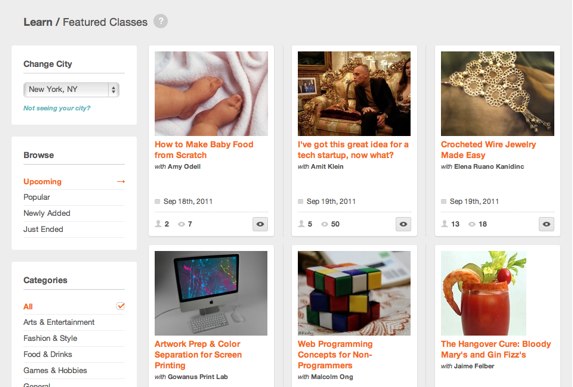The Internet has become a powerful platform for sharing educational content and for finding information about almost every topic imaginable. But even with all the opportunities for teaching and learning online, the value of face-to-face instruction from a knowledgeable teacher can't be discounted.
That's the premise behind the New York City peer-to-peer learning company Skillshare. Skillshare builds on a basic premise proven by the immeasurable amount of content on the Internet: there are a lot of smart people with valuable skills to teach -- and leverages the Internet's grassroots community-building function. The result is a wide selection of person-to-person classes on any number of topics -- from wire jewelry, to scone-baking, to Web development, to Bayesian statistics.
It's a cross between Etsy, an online marketplace for handmade goods, and Kickstarter, an online fundraising tool. If enough people show an interest in what you have to offer, your class is a go. Classes run an average of $20 per student, and the startup takes a 15% cut. Skillshare doesn't provide classroom space, but it does offer guidelines on finding a good venue to hold class.
So far, the startup has been focused solely in New York City, but it has recently expanded to San Francisco and Philadelphia. Skillshare is asking people all over the country to nominate their cities and with enough interest, the goal is to continue expanding.
But as the startup does so, it'll have to maintain the type of quality classes that have made it so popular in its native New York City. I talked to the company's community manager Danya Cheskis-Gold about Skillshare's mission and vision for peer-to-peer instruction and lifelong learning.



